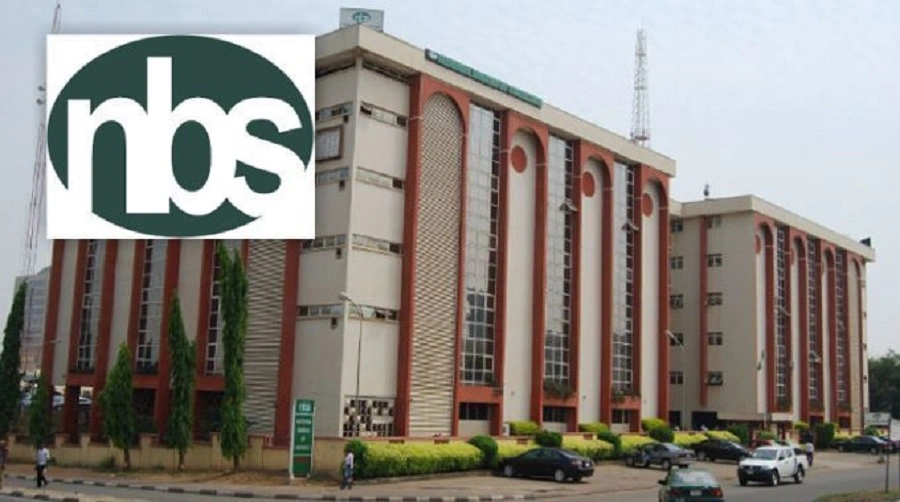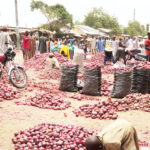Nigeria’s headline inflation dropped to 21.34 per cent in December from the 21.47 per cent recorded in November, the National Bureau of Statistics (NBS) has disclosed.
The NBS, in its monthly inflation report released on Monday, stated that prices of commodities in the country dropped by 0.13 per cent base point.
This drop is against predictions by experts with December known for the frenzy purchase of goods that are used to celebrate the Christmas and New Year festivities.
Daily Trust reports that Nigeria’s headline inflation has been on a consecutive rise since January 2022.
However, the report stated that on a year-on-year basis, the headline inflation rate was 5.72 per cent points higher compared to the rate recorded in December 2021, which was 15.63 per cent.
Chieftaincy: I’ll approve reforms by Olubadan-in-Council – Makinde
AfCTA: Buhari harps on infrastructure, educated workforce
“This shows that the headline inflation rate increased in December 2022 when compared to the same month in the preceding year.”
Similarly, it stated that on a month-on-month basis, the percentage change in the All-Items Index in December 2022 was 1.71 per cent, which was 0.32 per cent higher than the rate recorded in November 2022 (1.39 per cent).
“This means that in the month of December 2022, the general price level was 0.32 per cent higher relative to November 2022.
“The percentage change in the average CPI for the 12 months ending December 2022 over the average of the CPI for the previous 12 months period was 18.85 per cent, showing 1.89 per cent increase compared to the 16.95 per cent recorded in December 2021.”
It stated that the reason for the monthly rise was the demand usually experienced during the festive season and an increase in the cost of production
Meanwhile, the food inflation rate increased to 23.75 per cent on a year-on-year basis; which was 6.38 per cent higher compared to the rate recorded in December 2021 (17.37 per cent).
It stated that the rise was caused by increases in prices of bread and cereals, oil and fat, potatoes, yam and other tubers, fish and food products.
Also, the average annual rate of food inflation for the 12 months ending December 2022 when compared to the previous year was 20.94 per cent, which was 0.53 per cent point increase.
For All items less farm produce or Core inflation, it rose to 18.49 per cent on a year-on-year basis, a 4.62 per cent rise when compared to the 13.87 per cent recorded in December 2021.
“The highest increases were recorded in prices of gas, liquid fuel, passenger transport by air, vehicles spare parts, fuels and lubricants for personal transport equipment, solid fuel among others.
“The average 12-month annual inflation rate was 16.08 per cent for the 12 months ending December 2022; this was 2.91 per cent points higher than the 13.16 per cent recorded in December 2021,” NBS said in the report.
CBN’s monetary policy impacted on inflation – Uwaleke
A financial analyst, Prof. Uche Uwaleke said that headline inflation decelerated in December as a result of the tightening of interest rates by the Central Bank of Nigeria.
He said “One explanation for the slight deceleration in headline inflation for the month of December could be the lagged impact of CBN’s monetary policy tightening which I expect to linger and result in further disinflation in the coming months reinforced by the currency redesign and cash withdrawal limit,”
Speaking further, he said Although headline inflation came in lower in December compared to November on year on year basis, the usual demand pressure associated with the festive season was evident when viewed on month-on-month basis.
“It’s equally not surprising to note that core inflation increased in December 2022 relative to the previous month which may be due in part to the pass-through of higher exchange rates on imported items such as clothing, furniture, and other commodities usually in high demand during the Christmas period,” he added.
By Faruk Shuaibu & Philip Shimnom Clement

 Join Daily Trust WhatsApp Community For Quick Access To News and Happenings Around You.
Join Daily Trust WhatsApp Community For Quick Access To News and Happenings Around You.


